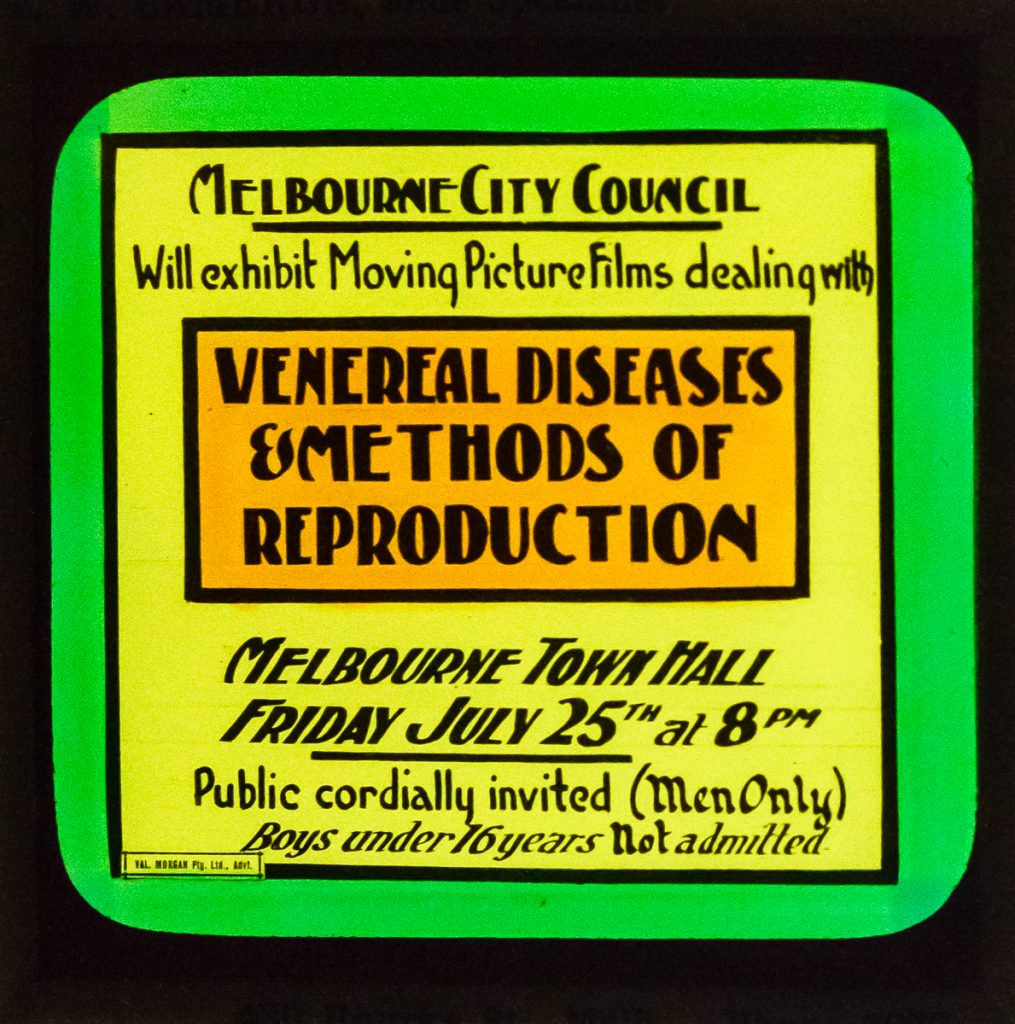Glass lantern slide, Venereal diseases and methods of reproduction, Melbourne Town Hall, 1930, T.W. Cameron
Summary
These glass lantern slides illustrate an important development in the role of local government. Indeed, roughly a century on, it is perhaps difficult to appreciate what a brave decision it was for a city council to run information sessions on sexually transmitted diseases. The key to its approach was to present the subject as a public health issue rather than a moral issue. This offered a directly counter-view to that leviathan of the social and political landscape, the Church, in its many guises of denomination. By using Melbourne Town Hall as the venue, the message was clear: this is a subject of reasonable interest to all (well, all men), and not one to solely be discussed shame-facedly and one-on-one, in the consulting room of a so-called ‘pox doctor’.
Special note here must be made of Dr Mervyn A Stewart, the council’s health officer for the two years around 1923–25. It was Stewart who drove the first event, in 1924. When he died, very suddenly aged only 36 years in 1931, the medical journal ‘Speculum’ ran an obituary that included reference to his time at Melbourne City Council: ‘While holding this office he delivered several public lectures, dealing especially with the subject of venereal disease'.
As a young man, he was perhaps especially alive to the potential of film to play a starring role in the service of a public-health message. The precise content and style of the three films featured on these slides (‘Human Pitfalls’, ‘Venereal Diseases and the Gift of Life’ and ‘Venereal Diseases and Methods of Reproduction’) is currently unknown. None of them are held at the National Film and Sound Archive, or at least not under those titles, nor have they been located, so far, in British or United States film archives.
